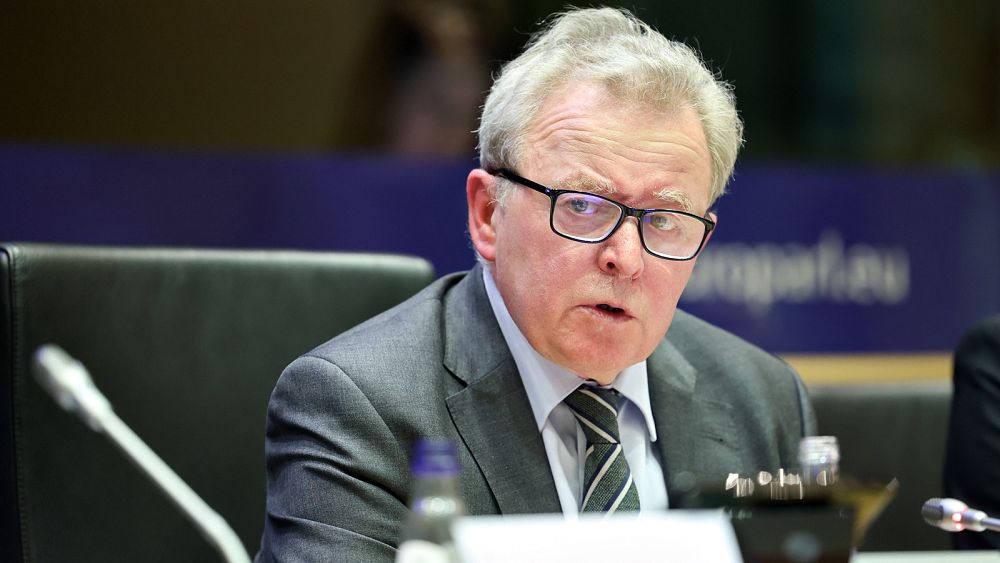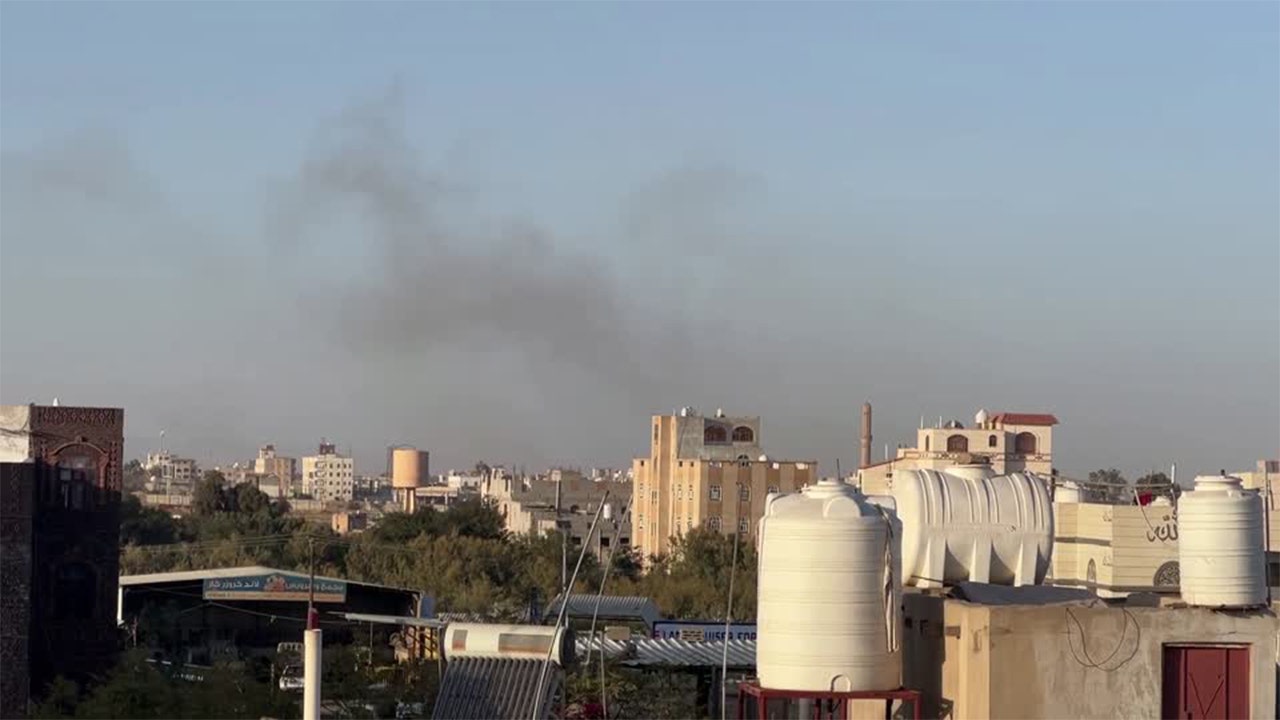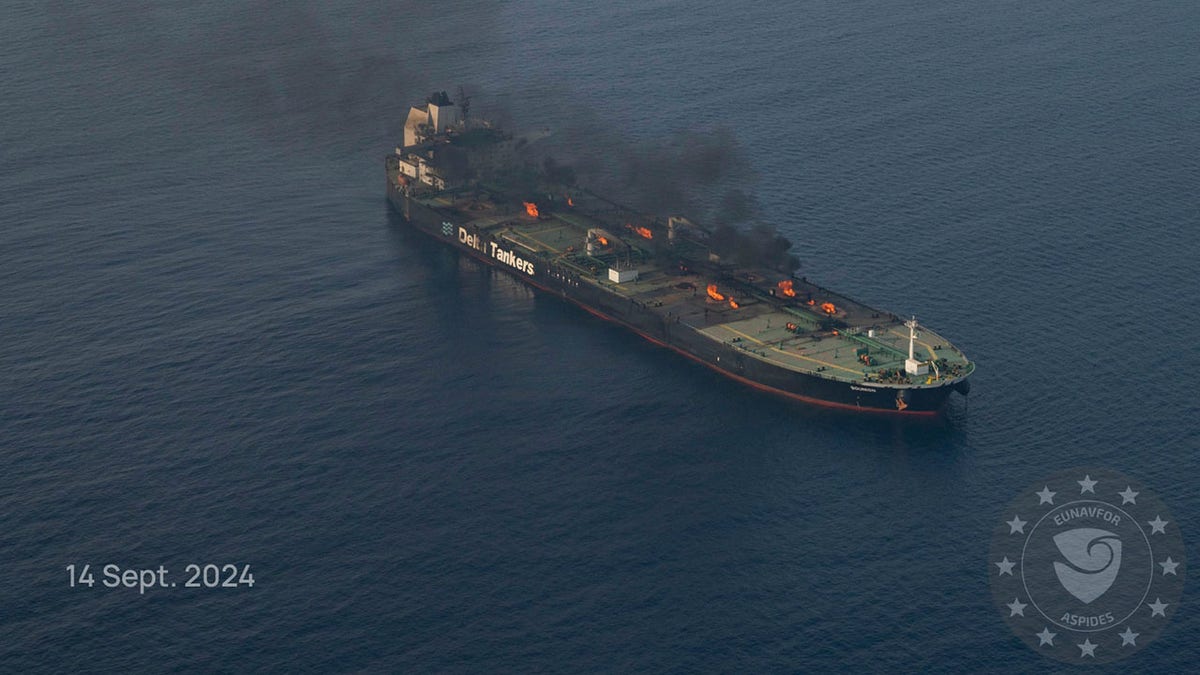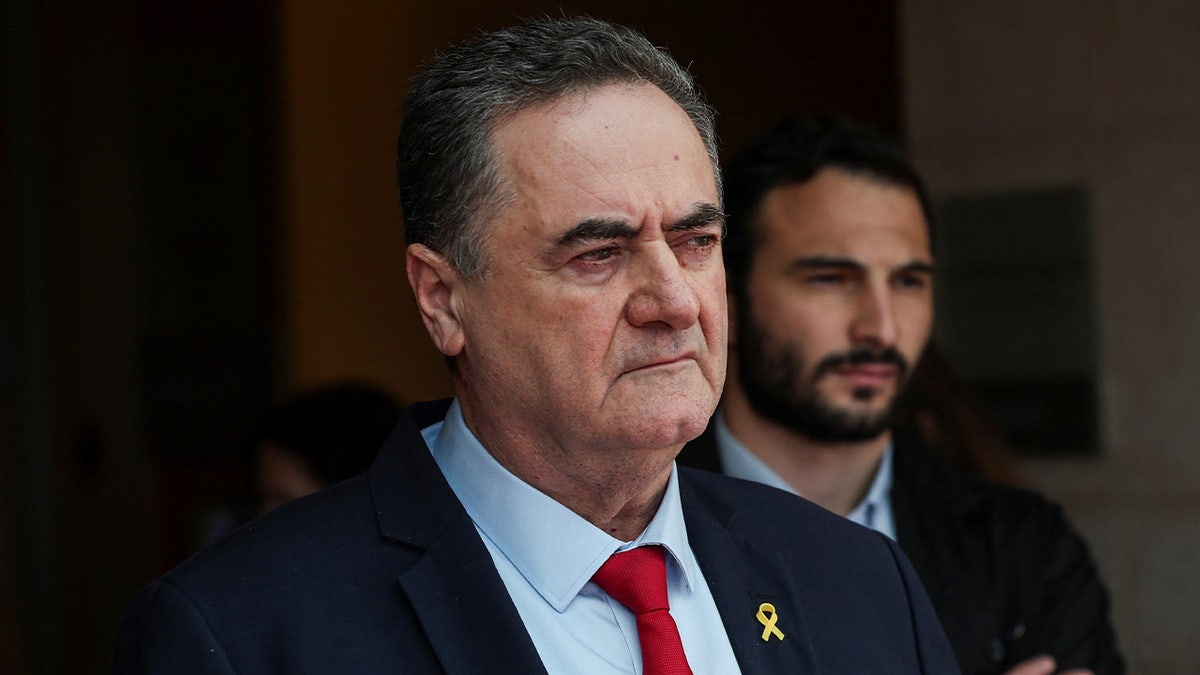World
Bans on Ukrainian grain should run until end of year: EU Commissioner

The temporary bans on tariff-free Ukrainian cereals should be prolonged until the end of the year, Janusz Wojciechowski, European Commissioner for agriculture, has said in comments that contradict the executive’s line.
The prohibitions have been in place since 2 May and apply to five members of the European Union located in Ukraine’s periphery – Poland, Hungary, Slovakia, Romania and Bulgaria –, who complain the grain glut has depressed prices for local farmers.
Under the bans, four products coming from Ukraine – wheat, maize, rapeseed and sunflower – can transit through the five Eastern European countries but cannot stay inside their markets for domestic consumption or storage purposes.
The measures are extraordinary in nature and have been vigorously criticised by the Kyiv authorities, including by President Volodymyr Zelenskyy, who has called them “absolutely unacceptable.” Other EU countries, such as Germany and France, have raised serious concerns about the impact of the restrictions on the integrity of the single market.
The European Commission, which negotiated the deal in a bid to prevent uncoordinated retaliatory action from Eastern Europe member states, has insisted the bans would be definitively phased out by 15 September and efforts would then focus on improving shipping capacity, infrastructure and storage.
But on Thursday morning, Wojciechowski, who is Polish, broke ranks with the executive’s main line and explicitly endorsed the extension of the trade prohibitions until the end of the year, a timeline set to unleash Kyiv’s fury.
“My observation is this local ban is functioning well, the direct imports to these five countries stopped, but we found negative consequences, generally, for the EU market, because the imports continued to other countries which need Ukraine grain, (like) Spain, the Netherlands, Italy,” Wojciechowski told Members of the European Parliament during a hearing of the committee on agriculture and rural development.
“We can expect – this is my observation – that if this ban is not prolonged, we will have the same problem (as) before with the frontline member states.”
Wojciechowski said opening up the market in full or closing it down in its entirety were “different extremes” and suggested instead a third possible option in which the temporary bans would stay in place but with extra financial aid to boost transport.
According to the Commissioner, only 2% to 3% of Ukrainian grain is being shipped out to non-EU countries, including low-income nations in Africa, because the costs of transit are too high, rendering the operation “not economically viable.” Consequently, the majority of the cargo is staying within the European market.
“This is the main barrier: the transit is not functioning well,” Wojciechowski said.
As a solution, the Commissioner floated a new programme of subsidies to help Ukrainian companies bring their cargo to EU ports and sell them around the world. He said the subsidies should be worth between €20 and €30 per tonne of grain, depending on the final destination. This will result in a €600 million programme – paid by the EU budget – to facilitate the shipping of 20 million tonnes until the end of the year.
“The only solution is to support transit and continue the ban (until) the end of the year because after 15 September there will be huge problems, the same problem – even bigger than we had before,” Wojciechowski told MEPs.
The Commissioner underlined the plan was his “personal proposal” but said he had already discussed it internally with his colleagues in the executive and with representatives of Poland, Hungary, Slovakia, Romania and Bulgaria, as well as Ukraine.
“I do think it’s the best solution and I hope the whole Commission will look into it and give its go-ahead,” he said, switching to Polish. “The problem is tough and we need to act in a spirit of solidarity with farmers, with the member states that have suffered with the situation, but also with Ukraine.”
His personal opinion
Shortly after the parliamentary hearing came to an end, the European Commission distanced itself from the Commissioner’s comments and stressed the 15 September phase-out would go ahead as originally planned.
“First of all, underline that, as the Commissioner said this morning during the hearing with the European Parliament, he expressed his opinion. He clearly said that his views didn’t represent the Commission’s position,” said a spokesperson.
The spokesperson added work was “ongoing” to increase transport capacity through alternative routes, like the Danube river, and address the bottlenecks that fuelled last year’s surge in Ukrainian exports after the introduction of the tariff-free regime.
“All this work is done ahead of the 15th of September to be able to have a very good preparation and make sure that we can address all the issues that were raised a few months ago,” the official said.
Despite the Commission’s swift reply to Wojciechowski’s unexpected proposal, his words exposed an internal disagreement within the executive that could further muddle the explosive debate about the future of the bans.
Poland, Hungary, Slovakia, Romania and Bulgaria have already asked Brussels to extend the prohibitions until the end of the year, arguing the collapse of the Black Sea Grain initiative would inevitably increase Ukrainian exports through land routes. The five frontline countries also said the list of blacklisted products should “remain open” and possibly cover goods “other than cereals and oilseeds.” On Thursday, Wojciechowski named poultry, eggs and raspberries as goods that deserved additional scrutiny.
For Poland, the topic is particularly sensitive due to the forthcoming general election: rural voters are considered a must-have demographic for Law and Justice (PiS), the hard-right ruling party. Wojciechowski has been affiliated with PiS since 2010.
But for Ukraine, any talk of an extension beyond 15 September is a non-starter.
“This move will violate the Ukraine-EU association agreement. Most importantly, this step will go against the principle of solidarity on which the European Union is based,” Dmytro Kuleba, Ukraine’s foreign affairs minister, said earlier this week while on a visit to Prague, in response to the demands of the five member states.
“If they behave like this, they will leave us with no chance but to fiercely defend our rights and the rights of Ukrainian farmers.”

World
EU preparing sanctions on Russia's 'shadow fleet' after cable damage

Countries in the region have been on alert following a string of incidents involving undersea cables and gas pipelines in the Baltic Sea since 2022.
The EU Foreign Policy chief has said the bloc is preparing sanctions on what it calls Russia’s ‘shadow fleet’ after an undersea power cable connecting Finland and Estonia was damaged in the Baltic Sea.
Kaja Kallas posted the joint statement from the EU Commission and the High Representative leading the investigation on X, saying the “suspected vessel is part of Russia’s shadow fleet, which threatens security and the environment, while funding Russia’s war budget.”
Kallas also said the EU was strengthening efforts to protect undersea cables, adding that there was no risk to regional electricity supplies.
That comes after Finnish authorities detained a Russian ship as part of an investigation into damage to the Estlink-2 power cable.
It carries electricity from Finland to Estonia across the Baltic Sea and went down on Wednesday.
Finnish police and border guards boarded the Eagle S vessel on Thursday and took over the command bridge, Helsinki Police Chief Jari Liukku said at a press conference.
The vessel was being held in Finnish territorial waters, police said.
The Eagle S is flagged in the Cook Islands but was described by Finnish customs officials and the European Union’s executive commission as part of Russia’s shadow fleet of fuel tankers.
Those are aging vessels with obscure ownership, acquired to skirt Western sanctions and operating without Western-regulated insurance.
Russia’s use of the vessels has raised environmental concerns about accidents given their age and uncertain insurance coverage.
The Eagle S’ anchor is suspected of causing damage to the cable, Yle television reported, citing police statements.
The Estonian government met in emergency session over the incident.
The shadow tankers “are helping Russia to earn funds that will aid Russian hybrid attacks,” Prime Minister Kristen Michal said at a news conference.
“We need to improve the monitoring and protection of critical infrastructure both on land and on sea.”
He said repairs to the cable could take as long as seven months.
“Repeated damage to Baltic Sea infrastructure signals a systemic threat, not mere accidents,” Estonia’s President Alar Karis said on X.
“Estonia will take action to counter this threat, together with Finland and other NATO allies.”
On high alert
Countries in the region have been on alert following a string of incidents involving undersea cables and gas pipelines in the Baltic Sea since 2022.
Two data cables — one running between Finland and Germany and the other between Lithuania and Sweden — were severed in November.
Germany’s defence minister said officials had to assume the incident was “sabotage,” but he didn’t provide evidence or say who might have been responsible.
And the Nord Stream pipelines that once brought natural gas from Russia to Germany were damaged by underwater explosions in September 2022.
Authorities have said the cause was sabotage and launched criminal investigations.
World
Saudi executions rose sharply in 2024

World
Israel launches strikes in Yemen on Houthi military targets, IDF says

The Israeli military claimed responsibility for a series of airstrikes in Yemen on Thursday that hit Sana’a International Airport and other targets in the Houthi-controlled capital.
The Israel Defense Forces said the strikes targeted military infrastructure used by the Houthis to conduct acts of terrorism.
“The Houthi terrorist regime has repeatedly attacked the State of Israel and its citizens, including in UAV and surface-to-surface missile attacks on Israeli territory,” the IDF said in a statement.
“The targets that were struck by the IDF include military infrastructure used by the Houthi terrorist regime for its military activities in both the Sana’a International Airport and the Hezyaz and Ras Kanatib power stations. In addition, the IDF struck military infrastructure in the Al-Hudaydah, Salif, and Ras Kanatib ports on the western coast.”
PROJECTILE FROM YEMEN STRIKES NEAR TEL AVIV, INJURING MORE THAN A DOZEN: OFFICIALS
Black smoke rises near Sana’a International Airport in Yemen after reported Israeli airstrikes. (Reuters)
The strikes come days after Israel’s defense minister promised retaliation against Houthi leaders for missile strikes launched at Israel from Yemen.
Houthi rebels, who control most of northern Yemen, have fired upon Israel for more than a year to support Hamas terrorists at war with the Jewish State. The Houthis have attempted to enforce an embargo on Israel by launching missiles and drones at cargo vessels crossing the Red Sea – a major shipping lane for international trade.
US NAVY SHIPS REPEL ATTACK FROM HOUTHIS IN GULF OF ADEN

This photo released by the European Union’s Operation Aspides naval force shows the oil tanker Sounion burning in the Red Sea following a series of attacks by Yemen’s Houthi rebels, on Saturday Sept. 14, 2024. (European Union’s Operation Aspides via AP)
Overall, the Houthis have launched over 200 missiles and 170 drones at Israel since Hamas’s Oct. 7, 2023, massacre of 1,200 people. Since then, the Houthis have also attacked more than six dozen commercial vessels – particularly in the Bab-el-Mandeb, the southern maritime gateway to Egypt’s Suez Canal.
On Saturday, a projectile launched into Israel from Yemen struck Tel Aviv and caused mild injuries to 16 people, Israeli officials said. The incident was a rare occasion where Israeli defense systems failed to intercept an attack.
NETANYAHU WARNS HOUTHIS AMID CALLS FOR ISREAL TO WIPE OUT TERROR LEADERSHIP AS IT DID WITH NASRALLAH, SINWAR

Israeli Defense Minister Israel Katz looks on, amid the ongoing conflict in Gaza between Israel and Hamas, in Jerusalem, November 7, 2024. (REUTERS/Ronen Zvulun)
Israel retaliated by striking multiple targets in areas of Yemen under Houthi control, including power plants in Sana’a.
Israeli leaders have vowed to eliminate Houthi leadership if the missile and drone attacks do not cease.
On Monday, Israeli Defense Minister Israel Katz said, “We will strike their strategic infrastructure and decapitate their leaders. Just as we did to [former Hamas chief Ismail] Haniyeh, Sinwar and Nasrallah, in Tehran, Gaza and Lebanon – we will do in Hodeidah and Sanaa.”
Prime Minister Benjamin Netanyahu has also urged Israelis to be “patient” and suggested that soon the military will ramp up its campaign against the Houthis.
“We will take forceful, determined and sophisticated action. Even if it takes time, the result will be the same,” he said. “Just as we have acted forcefully against the terror arms of Iran’s axis of evil, so too will we act against the Houthis.”
Fox News Digital’s Amelie Botbol contributed to this report.
-
/cdn.vox-cdn.com/uploads/chorus_asset/file/24924653/236780_Google_AntiTrust_Trial_Custom_Art_CVirginia__0003_1.png)
/cdn.vox-cdn.com/uploads/chorus_asset/file/24924653/236780_Google_AntiTrust_Trial_Custom_Art_CVirginia__0003_1.png) Technology6 days ago
Technology6 days agoGoogle’s counteroffer to the government trying to break it up is unbundling Android apps
-

 News7 days ago
News7 days agoNovo Nordisk shares tumble as weight-loss drug trial data disappoints
-

 Politics7 days ago
Politics7 days agoIllegal immigrant sexually abused child in the U.S. after being removed from the country five times
-

 Entertainment1 week ago
Entertainment1 week ago'It's a little holiday gift': Inside the Weeknd's free Santa Monica show for his biggest fans
-

 Lifestyle1 week ago
Lifestyle1 week agoThink you can't dance? Get up and try these tips in our comic. We dare you!
-
/cdn.vox-cdn.com/uploads/chorus_asset/file/25672934/Metaphor_Key_Art_Horizontal.png)
/cdn.vox-cdn.com/uploads/chorus_asset/file/25672934/Metaphor_Key_Art_Horizontal.png) Technology2 days ago
Technology2 days agoThere’s a reason Metaphor: ReFantanzio’s battle music sounds as cool as it does
-

 Technology1 week ago
Technology1 week agoFox News AI Newsletter: OpenAI responds to Elon Musk's lawsuit
-

 News3 days ago
News3 days agoFrance’s new premier selects Eric Lombard as finance minister
















